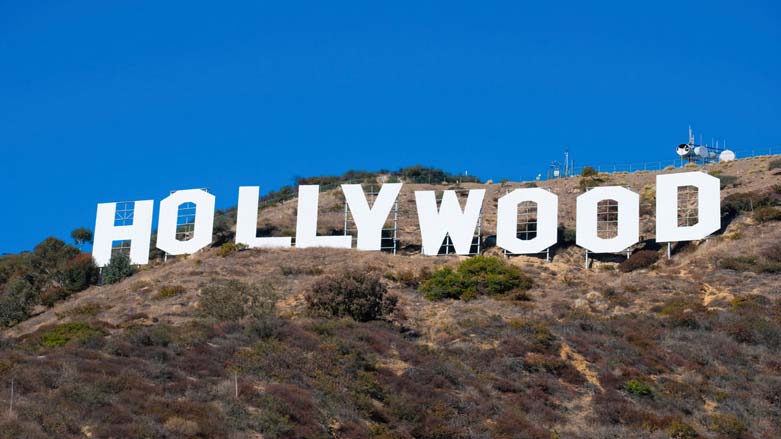Hollywood can do more for Kurdistan

There is no shortage of Hollywood celebrities supporting environmental, political, or social causes. From George Clooney's righteous activism for South Sudan to Sean Penn's active support for rebuilding Haiti; it is often these same celebrities that help bring such important causes to the forefront and stimulate awareness, activism, and practical change. For over four decades, Americans watched the “Jerry Lewis Telethon” every Labor Day, which raised tens of millions of dollars for Muscular Dystrophy partially thanks to the help of A-listers who personally picked up the phones to take people's donations.
Given that celebrities have just as much access to the latest geopolitical happenings it is somewhat surprising that the “Kurdish issue” has not received much support from those in Beverly Hills—even after front-page headlines announced that Islamic State (IS) committed genocide against Ezidis (Yezidis) and ethnically cleansed most of the Iraqi Christian population from their homes. Stereotyped as overwhelmingly progressive, even conservative celebrities have not paid much attention to the most recent persecution and genocidal policies inflicted upon those in Syria and Iraq.
Though some celebrities and artists recently performed in Kurdistan such as the rapper Nelly and the lesser-known rock band Black Lips, they did not speak out as cultural ambassadors. While this is their prerogative, they missed an opportunity to be trailblazers and to optimize their statuses for positive change. One way to garner support and awareness has been through benefit concerts and festivals and are useful tools.
Much like the Concert for Bangladesh in 1971 and Live Aid for Africa in 1985, the international community came together to collect humanitarian aid for Kurdish refugees in the “Simple Truth Concert for Kurdish Refugees” in 1991, after the (in)famous Kurdish Raparin. Performed in the UK and broadcast on MTV, many famous artists supported this worldwide event such as Sting, Paul Simon, Rod Stewart, Gloria Estefan, MC Hammer, and Madonna—the latter of whom encouraged viewers to donate to the American Red Cross. The five-hour concert beamed to nearly forty countries—an estimated 500 million people—and reportedly raised $15 million.
It is often stated that any publicity is good publicity.
In a bizarre social media rant, famous Atlanta-based rapper Waka Flocka Flame (Juaquin Malphurs) extended his support to the Kurdish cause only a few weeks after he announced his (somewhat serious) candidacy for President of the United States. In an evidently non-sequitur posting he quipped, “...free Palestine, free Kurdistan...” receiving over 4,600 retweets and 3,000 likes. Interestingly enough, less than a month before he announced his presidential bid, he posted on Facebook a link and picture of a probable US Marine, who evidently joined Peshmerga forces to combat IS. “Terrorist hunting in Kurdistan is how this marine spends his vacation! WILD!” exuded the hip-hop star. For those interested in a more 'comprehensive' look at his international views, Foreign Policy ran a story last April.
Curiously, public support and performing at a concert was not enough for one star. British-born Michael Enright, a low-level actor who had a bit role in Pirates of the Caribbean: Dead Man's Chest gained some notoriety for leaving his somewhat glamorous life for trading bullets with Islamic State extremists in Rojava. Though we should assume the middle-aged actor had good intentions, his presence among Kurdish YPG fighters became problematic for yet unclear reasons and was recently asked to leave the improbably effective anti-IS force.
Placing Kurdistan on the gastronomical map during a well-received episode of No Reservations in 2011, famous chef and world traveler Anthony Bourdain said he and his crew left “as untouched and as untroubled” as they’d been before they arrived. Crucially he stated that he would still recommend Kurdistan to anyone looking for an “off-beaten track adventure tourism."
However, there is one A-lister that arguably deserves the most approbation when it comes to Kurdistan: Angelina Jolie. Not only has she visited the Kurdistan Region and Iraq several times and as an official UNHCR Special Envoy, she has visited many displaced families and victims of IS brutality in several refugee and IDP camps throughout the Kurdistan Region. During one of her emotional visits, she exclaimed, "nothing can prepare you for the horrific stories of these survivors of kidnap, abuse, and exploitation and to see how they cannot all get the urgent help they need and deserve. The needs so dramatically outstrip the resources available in this vast crisis."
Given that Kurds are the most effective forces fighting extremism in the Middle East, seek genuine and friendly relations with the west, and traditionally and institutionally embrace religious and ethnic diversity, it is surprising that Hollywood has not endeavored to engage further with the “Kurdish issue” and encourage others to do the same. Their “star power” can influence millions, from Main St. to 1600 Pennsylvania Avenue.
